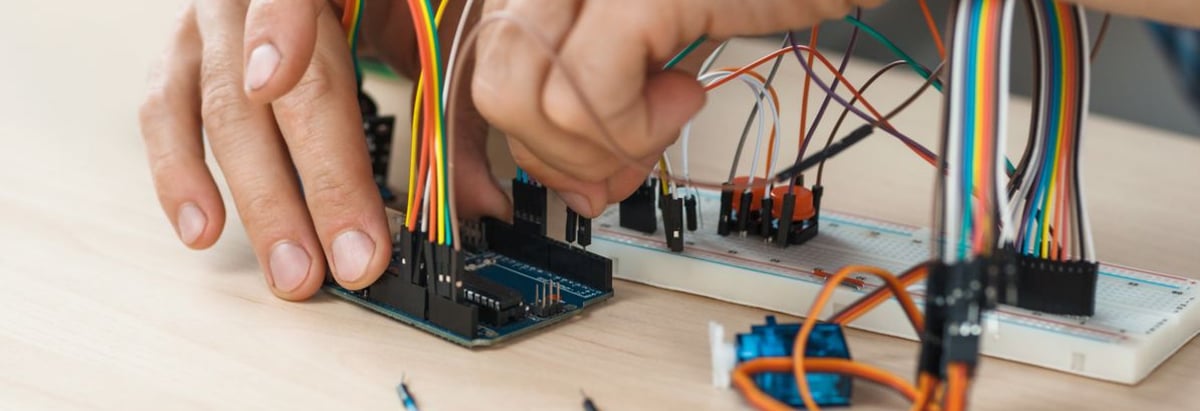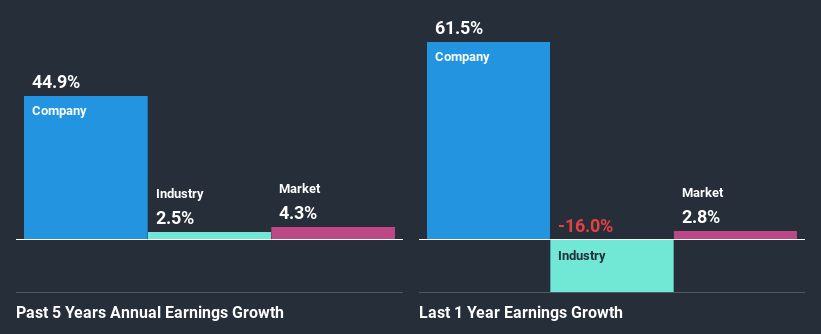- South Korea
- /
- Electronic Equipment and Components
- /
- KOSE:A006400
Is Samsung SDI Co., Ltd.'s (KRX:006400) Recent Stock Performance Influenced By Its Fundamentals In Any Way?

Samsung SDI's (KRX:006400) stock is up by a considerable 23% over the past three months. Given that stock prices are usually aligned with a company's financial performance in the long-term, we decided to study its financial indicators more closely to see if they had a hand to play in the recent price move. Particularly, we will be paying attention to Samsung SDI's ROE today.
Return on equity or ROE is an important factor to be considered by a shareholder because it tells them how effectively their capital is being reinvested. In simpler terms, it measures the profitability of a company in relation to shareholder's equity.
Check out our latest analysis for Samsung SDI
How Is ROE Calculated?
Return on equity can be calculated by using the formula:
Return on Equity = Net Profit (from continuing operations) ÷ Shareholders' Equity
So, based on the above formula, the ROE for Samsung SDI is:
4.7% = ₩631b ÷ ₩13t (Based on the trailing twelve months to December 2020).
The 'return' is the profit over the last twelve months. One way to conceptualize this is that for each ₩1 of shareholders' capital it has, the company made ₩0.05 in profit.
What Is The Relationship Between ROE And Earnings Growth?
We have already established that ROE serves as an efficient profit-generating gauge for a company's future earnings. We now need to evaluate how much profit the company reinvests or "retains" for future growth which then gives us an idea about the growth potential of the company. Assuming all else is equal, companies that have both a higher return on equity and higher profit retention are usually the ones that have a higher growth rate when compared to companies that don't have the same features.
Samsung SDI's Earnings Growth And 4.7% ROE
It is quite clear that Samsung SDI's ROE is rather low. An industry comparison shows that the company's ROE is not much different from the industry average of 5.4% either. However, the exceptional 45% net income growth seen by Samsung SDI over the past five years is pretty remarkable. Given the low ROE, it is likely that there could be some other reasons behind this growth as well. For instance, the company has a low payout ratio or is being managed efficiently.
We then compared Samsung SDI's net income growth with the industry and we're pleased to see that the company's growth figure is higher when compared with the industry which has a growth rate of 2.5% in the same period.

The basis for attaching value to a company is, to a great extent, tied to its earnings growth. The investor should try to establish if the expected growth or decline in earnings, whichever the case may be, is priced in. Doing so will help them establish if the stock's future looks promising or ominous. One good indicator of expected earnings growth is the P/E ratio which determines the price the market is willing to pay for a stock based on its earnings prospects. So, you may want to check if Samsung SDI is trading on a high P/E or a low P/E, relative to its industry.
Is Samsung SDI Efficiently Re-investing Its Profits?
Samsung SDI's three-year median payout ratio to shareholders is 12%, which is quite low. This implies that the company is retaining 88% of its profits. So it looks like Samsung SDI is reinvesting profits heavily to grow its business, which shows in its earnings growth.
Moreover, Samsung SDI is determined to keep sharing its profits with shareholders which we infer from its long history of paying a dividend for at least ten years. Our latest analyst data shows that the future payout ratio of the company is expected to drop to 6.0% over the next three years. As a result, the expected drop in Samsung SDI's payout ratio explains the anticipated rise in the company's future ROE to 13%, over the same period.
Summary
Overall, we feel that Samsung SDI certainly does have some positive factors to consider. Despite its low rate of return, the fact that the company reinvests a very high portion of its profits into its business, no doubt contributed to its high earnings growth. Having said that, the company's earnings growth is expected to slow down, as forecasted in the current analyst estimates. Are these analysts expectations based on the broad expectations for the industry, or on the company's fundamentals? Click here to be taken to our analyst's forecasts page for the company.
If you’re looking to trade Samsung SDI, open an account with the lowest-cost* platform trusted by professionals, Interactive Brokers. Their clients from over 200 countries and territories trade stocks, options, futures, forex, bonds and funds worldwide from a single integrated account. Promoted
New: Manage All Your Stock Portfolios in One Place
We've created the ultimate portfolio companion for stock investors, and it's free.
• Connect an unlimited number of Portfolios and see your total in one currency
• Be alerted to new Warning Signs or Risks via email or mobile
• Track the Fair Value of your stocks
This article by Simply Wall St is general in nature. It does not constitute a recommendation to buy or sell any stock, and does not take account of your objectives, or your financial situation. We aim to bring you long-term focused analysis driven by fundamental data. Note that our analysis may not factor in the latest price-sensitive company announcements or qualitative material. Simply Wall St has no position in any stocks mentioned.
*Interactive Brokers Rated Lowest Cost Broker by StockBrokers.com Annual Online Review 2020
Have feedback on this article? Concerned about the content? Get in touch with us directly. Alternatively, email editorial-team (at) simplywallst.com.
About KOSE:A006400
Samsung SDI
Manufactures and sells batteries in South Korea, Europe, China, North America, Southeast Asia, and internationally.
Reasonable growth potential slight.
Similar Companies
Market Insights
Community Narratives





